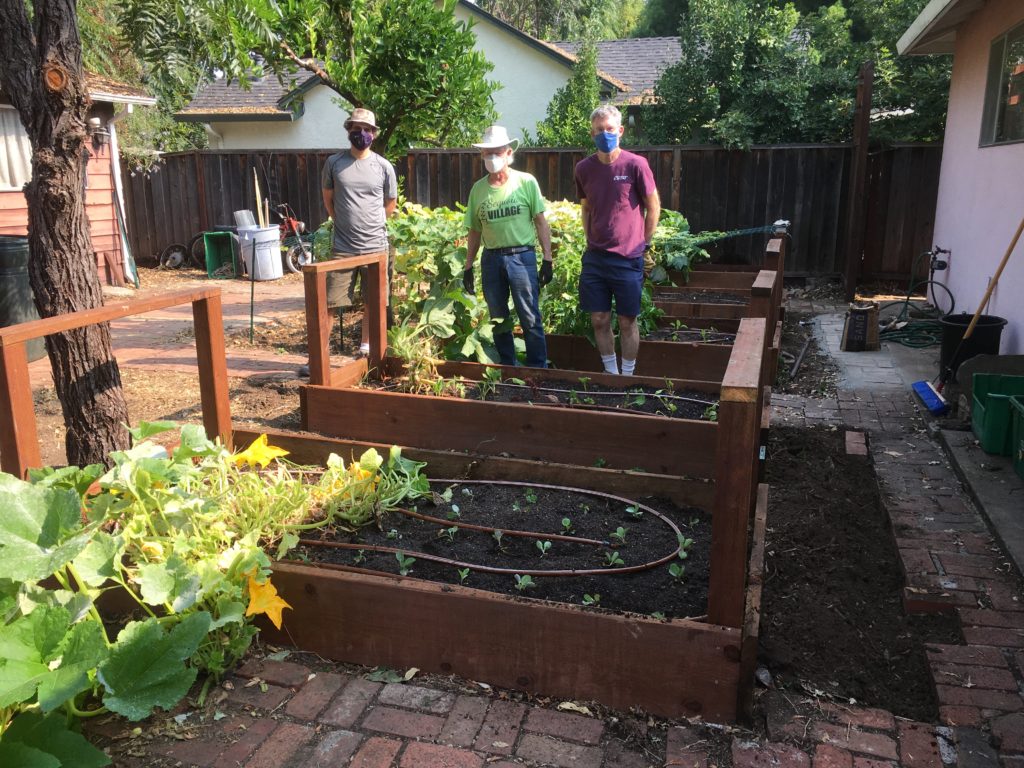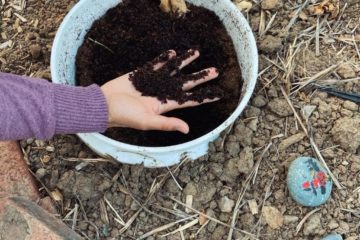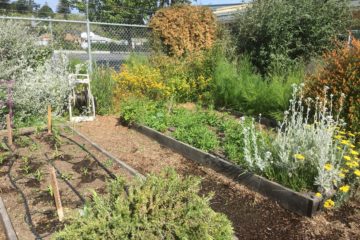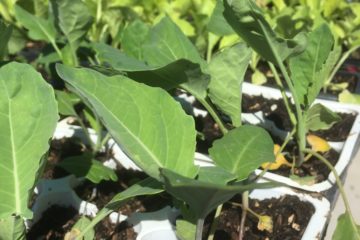Written by Nicole Shimizu, Communications and Outreach Intern

According to several studies on the impacts of gardening and exposure to nature on elderly and aging populations, gardening has several positive effects on this population’s mental and physical health. These effects include the slowing down of the deterioration of an individual’s physiological and cognitive abilities and protection against mortality due to an increased exposure to green spaces including gardens. Especially in individuals who choose to age in place, gardening offers an opportunity for physical activity and connection to the neighborhood and community at large.
In general, green spaces are extremely beneficial for aging populations. In a study done on urban residential environments, researchers found that senior citizens with access to nearby greenery-filled public spaces experienced increased longevity. Living in areas with accessible green spaces that allowed individuals to stay physically active was found to positively impact one’s longevity “independent of age, sex, marital status, baseline functional status, and socioeconomic status” (Takano et al., 2002). Additionally, Frances Kuo’s study on exposure to green spaces encourages as much exposure as possible to nature (2013). This means bringing green spaces closer to individuals with limited mobility such as elderly individuals which highlights the importance of activities such as backyard gardening to increase this population’s exposure to green spaces.
In a study conducted regarding low-income senior citizens and their experience with gardening, researchers found that the participants of the study experienced improvements in cognitive and nutrition outcomes as a result of gardening involvement. During the study the participants “experimented by planting and consuming vegetables they had never eaten before” while “demonstrating pride in the growth and progress of their gardens” (Strout et al., 2017). Participants reported incorporating their own vegetables into a more healthy, plant-based diet. These fruit and vegetable rich diets are linked to less risk of cognitive decline compared to those who consume less healthy foods. In addition to benefiting from fruit and vegetable rich meals, the study participants engaged in increased amounts of social engagement with garden volunteers which also helps with cognitive health prevention (Strout et al., 2017). The wellness of the study participants overall increased in terms of cognitive benefits, nutritional intake, physical activity, and social activity which demonstrates the positive effects of gardening on older populations.
A study conducted on the physical and mental health of elderly with mental health problems using gardening as horticultural therapy found that gardening was extremely beneficial to both their physical and mental health. These mental health problems ranged from depression to dementia. Through the horticultural therapy experience, the cortisol levels of the participants went from 7.56 before the program to 3.80 after the program. These results indicate the alleviation of stress due to program participation in elderly individuals with mental health problems. Furthermore, alongside reduced levels of cortisol, participants experienced reduced levels of depression and anxiety. In addition to improvements in mental health, participants in the program experienced improvements in physical functional abilities. A survey given to participants at the end of the study showed that 93% of participants were extremely satisfied and 7% were satisfied with the program (Han et al., 2018). The participants’ feedback and the positive results associated with the completion of the horticulture therapy program indicate the positive effects of gardening on elderly individuals with mental health problems and their willingness to be involved in gardening activities.
In a study done on Ambient Assisted Living (AAL), the researchers detailed the customizations and personalizations such as the level of task automation and motivational strategies to ensure the users’ participation and engagement in at-home gardening. The system described works synergistically with the user’s physical and cognitive abilities, skills, values and preferences, confidence, and time constraints (Zschippig and Kluss, 2016). The study states that gardening, especially with these accommodations, empowers people to stay active while being considerate of their physical and cognitive abilities. The accommodations enable individuals to continue engaging in physical activity which increases their physical health. Making the garden more accessible allows individuals to stay at home, while extending their activities beyond the walls of their home into the outdoors. Gardening empowers individuals to live independently, manage their health, and maintain their well-being in a personally meaningful way (Zschippig and Kluss, 2016). The addition and considerations of AAL gardens make gardening more accommodating for the elderly and extend the possibilities for more people to be involved with and experience the benefits of gardening.
One interesting consideration is the difference in emotional wellbeing and satisfaction comparing ornamental and vegetable gardening. Individuals that engage in vegetable gardening experience higher levels of emotional wellbeing than ornamental gardeners. The difference between the two could be due to the “connection between gardening and meaningfulness, as a proxy of life purpose” since vegetable gardening offers “the additional importance of producing food” (Ambrose et al., 2020). This difference between ornamental and vegetable gardening could further encourage older populations to adopt gardening and find more fulfilment through gardening.
Overall, the benefits of gardening on the aging populations extends to their mental and physical health as these case studies have shown. Gardening gives the elderly a sense of purpose while also providing them with a way to connect with their community, stay physically active, and nutritionally enrich their diet.
Written by Nicole Shimizu, Communications and Outreach Coordinator (July 2020)
Sources:
Ambrose, Graham et al. “Is gardening associated with greater happiness of urban residents? A multi-activity, dynamic assessment in the Twin Cities region, USA.” Landscape and Urban Planning, vol. 198, 2020, https://doi.org/10.1016/j.landurbplan.2020.103776.
Han, Ah-Reum et al. “Reduced stress and improved physical functional ability in elderly with mental health problems following a horticultural therapy program.” Complementary Therapies in Medicine, vol. 38, 2018, pp. 19-23, https://doi.org/10.1016/j.ctim.2018.03.011.
Kuo, Frances E. “Ming.” “Nature-deficit disorder: evidence, dosage, and treatment.” Journal of Policy Research in Tourism, Leisure, and Events, vol. 5, no. 2, 2013, pp. 172-186, https://doi-org.proxy.library.ucsb.edu:9443/10.1080/19407963.2013.793520.
Strout, Kelley, et al. “GROW: Green Organic Vegetable Gardens to Promote Older Adult Wellness: a Feasibility Study.” Journal of Community Health Nursing, vol. 34, no. 3, 2017, pp. 115-125, https://doi-org.proxy.library.ucsb.edu:9443/10.1080/07370016.2017.1340554.
Takano, T., et al. “Urban residential environments and senior citizens’ longevity in megacity areas: the importance of walkable green space.” Epidemiology and Community Health, vol. 56, no. 12, 2002, http://dx.doi.org.proxy.library.ucsb.edu:2048/10.1136/jech.56.12.913.
Zschippig, C. and Kluss, T. “Gardening in Ambient Assisted Living.” Urban Forestry and Urban Greening, vol. 15, 2016, pp. 186-189, https://doi.org/10.1016/j.ufug.2015.12.008.



0 Comments